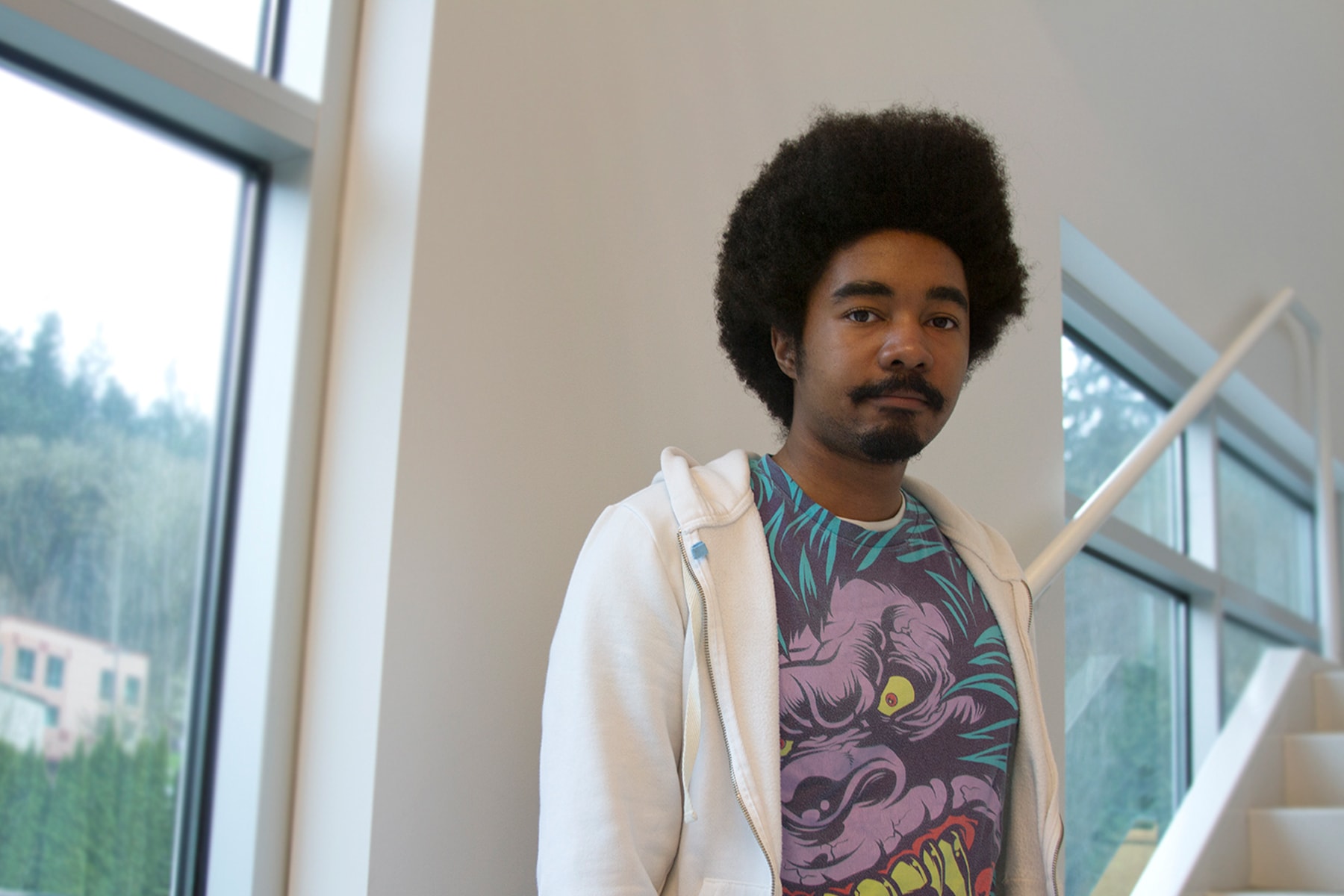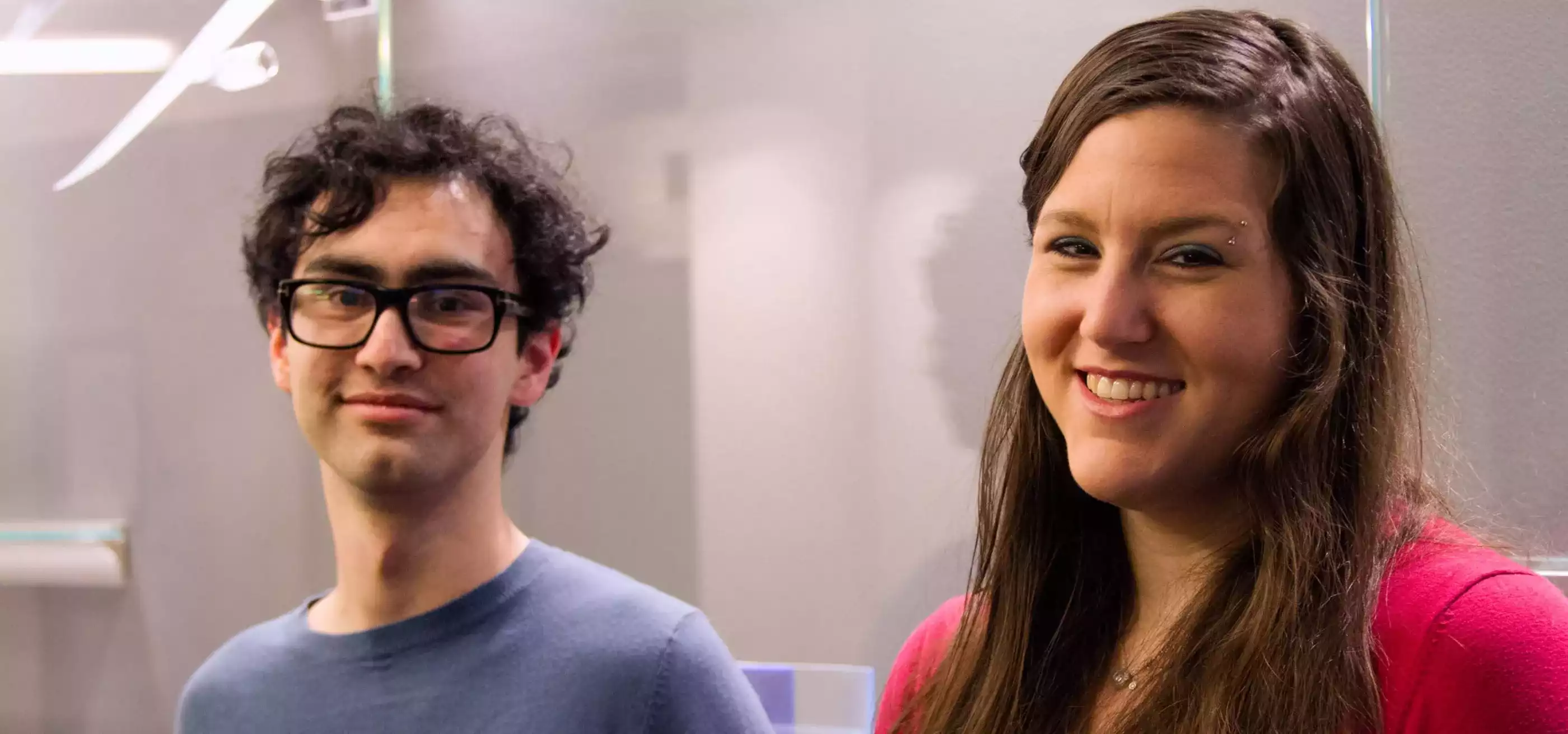DigiPen students have had a lot of success over the years at the GDC Student Narrative Analysis Competition, but it might be hard to top this year’s representation, which includes three Platinum winners and five winners in the Gold category.
The three DigiPen students who swept this year’s Platinum awards are Izzy Abdus-Sabur, Harrison Barton, and Alexandra Lucas. DigiPen’s Gold winner students are Chris Beagle, Christopher Rosario, Viet Nhi Tran, Kiera Schroeder, and Michael Van Zant.
Now in its ninth year, the competition — organized by members of the Game Developers Conference Narrative Summit Committee — invites students from university game design programs to submit a structured narrative analysis on a game of their choosing. In examining the game’s plot, characters, and themes, students weigh in on both the strengths and shortcomings of the overall narrative approach.
It’s a lot of good connections. You meet a lot of good people. And you just learn a whole lot.”
After all submissions have been reviewed, competition judges select the most promising entries, with three spots reserved for the Platinum winner category. Gold winners receive a free pass to attend the GDC Expo, and Platinum winners receive an All-Access GDC pass — valued at over $1,500 for regular attendees — which grants entry to all official events during the week-long conference. Participating students also have the opportunity to present a poster of their work during the GDC Narrative Summit, which takes place during the first two days of the conference.
In selecting their games, students gravitated toward a wide range of styles and genres.
“The game I chose to write about was The Stanley Parable. I selected it because it has a very unique take on story structure and interactive narrative,” said Barton, one of the three Platinum winners. “I decided to write the introduction of the essay using the voice of the game’s narrator, because I thought it was appropriate given the meta-narrative nature of the game.”
Fellow Platinum winner Abdus-Sabur examined the game Darkest Dungeonand its inventive use of stress as an in-game mechanic and statistic for characters in combat. This will mark his second trip to GDC, having volunteered in 2015 as a Conference Associate.
“It’s a lot of good connections. You meet a lot of good people. And you just learn a whole lot,” Abdus-Sabur said. “I went home with a notebook filled with about 20 to 25 pages of valuable information.”
Lucas, who also won a Platinum award in 2015 for her analysis of romance and sexuality in Dragon Age: Origins, became the first person in the history of the competition to win the Platinum award twice. For this year’s competition, she focused on depictions of mental illness, relatable archetypes, and femininity in the 2010 mystery thriller Heavy Rain.
“You play as four different characters, and they’re all trying to figure out the identity of the ‘Origami Killer,’” Lucas said. “Something that really fascinates me about those characters is they all are dealing with some major challenge that prevents them from ultimately solving [the mystery] by themselves.”
Seeing that kind of subject matter in games can help slowly chip away at the societal stigma.”
Despite some of the game’s stumbling points (including some problematic representations of femininity), Lucas says she appreciated the game for its narrative ambition and for exploring territory not commonly seen in other games — such as PTSD, agoraphobia, insomnia, and substance abuse.
“Seeing that kind of subject matter in games can help slowly chip away at the societal stigma,” Lucas said. “Another thing about [the game] is there’s no reload option, so if you don’t hit the quick-time events, you have to live with the consequences — and that can be really painful. But, again, I think it teaches people about real life.”

As someone with a deep personal interest in storytelling for video games, Lucas says her experience at last year’s GDC Narrative Summit was invaluable. During the poster presentation alone, she says, she had the chance to speak with representatives from major game companies like Square-Enix, Bethesda, and BioWare.
She also decided, on a whim, to cosplay in the style of a Dragon Age character.
“And that got people talking to me,” Lucas said. “It felt really easy, because they were just as excited about romance and sexuality in games as I was.”
Outside of the official panels and discussions, Lucas says she took advantage of other networking opportunities during GDC, including an evening social gathering for game industry writers.
“I tried not to be obnoxious about it, but I asked lots of questions. And I found that everyone was really welcoming, [for one] because I had proven myself in a student capacity and [also] because they know how hard it is to break in as a writer,” Lucas said. “So I got the chance to ask them tons of questions about how to build up my portfolio.”
Thanks in part to the connections and insights she gained from the experience, Lucas says she recently landed a job as a game writer for Plarium Global.
Not only do we get to network with folks from other schools who are also coming into the industry, but we can connect with people from all over.”
In addition to presenting her narrative analysis, Lucas will also be returning to this year’s conference as an official organizer for an IGDA roundtable discussion on serious games. That opportunity, she says, was the result of yet another connection she made during her poster presentation from 2015.
“Not only do we get to network with folks from other schools who are also coming into the industry, but we can connect with people from all over,” Lucas said. “It’s an incredible opportunity.”
Congratulations to each of the winners! You can view contest submissions from past winners in the GDC Vault.
